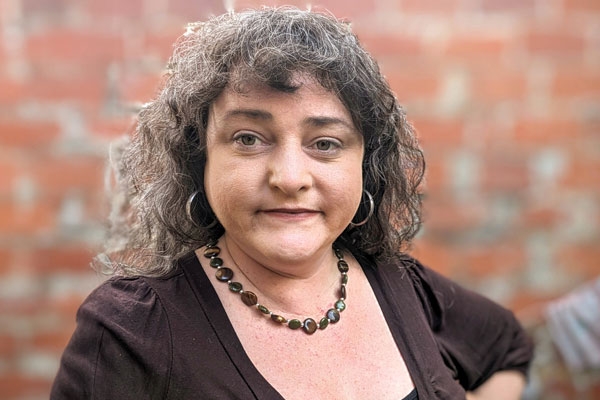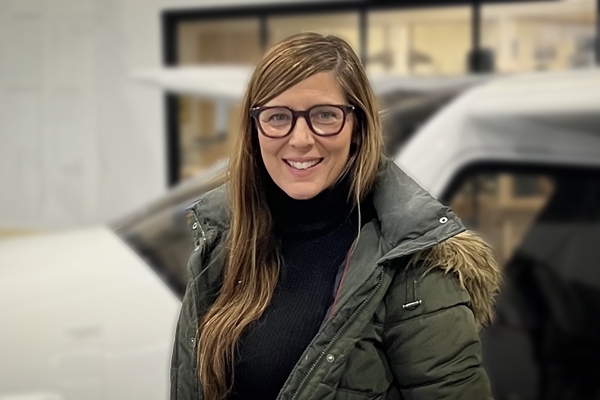"I can't get a job if I don't have experience, but I can't get experience if I don't have a job."
Writer Lorna Walsh became well aware of this catch when she switched gears to embark on an editing career. But how to fix it? Her solution was Embark Editorial Agency, where writers can match up with copy editors—copy editors get experience, writers get editing help. Win, win. Today, Walsh has her own editing business, Ideal Type, LLC, with Embark as a pro-bono copyediting service. You can read more about how Embark was sparked during her studies in our editing courses.
We caught up with her to hear how Embark has become a career launch pad for editors.
It’s been a little more than a year since you launched Embark Editorial Agency, which is part of your Ideal Type company. What role does the Agency play?
The Embark Editorial Agency was primarily set up to serve nonprofit organizations. Having worked in the nonprofit sector for many years, I know that many small organizations are focused on their frontline services, and copyediting is a luxury they cannot afford. Yet it is vitally important that the nonprofit's materials are correct and consistent. The Agency offers to take on copyediting, which could be considered a tedious task.
Embark also serves writers who self-publish blogs, short stories or book-length material. Emerging writers seldom see any income from their work, so they tend not to invest in editorial services, which is a false economy in my view. By working with us, writers can experience professional copyediting, learn to appreciate its value and then make it an ongoing part of their writing process.
Walk me through the process of becoming a freelance copy editor with the Agency.
All the editors at the Agency are current or former students of the UC Berkeley Extension editing program, but we're open to applications from anyone who has passed an accredited editing course with at least a B grade (or equivalent). Each application is assessed individually, and applicants are advised to read the terms of service for editors before applying. There is no entrance test, but new recruits are closely supported through their first few assignments to identify skill gaps. I provide feedback to the editors to ensure they are developing their core copyediting skills.
Does a copyeditor need to be knowledgeable about a field in order to edit a document devoted to that particular field?
Editors volunteer for projects, and they can take on assignments that best match their interests and experience. That said, Embark Editorial Agency does not accept highly specialized editing projects or accept legal or financial documents of any kind; we leave the super technical copyediting to the seasoned professionals! An example of the kind of nonprofit the Agency partners with is Science Connected, which promotes the public accessibility of academic research through its online magazine. Our editors can ensure readability perhaps better than someone who has a scientific background.
Is there a greater need for freelance editors who specialize in nonfiction or fiction? Is it important to have a specialty in one or the other?
Some freelance editors find that it is beneficial to specialize in a specific field, such as health care. I believe that editors should be as broad as possible in their scope at the start of an editing career. Because I am also a writer of fiction, I began my editing career by casting a wide net. I freelance regularly for two publishers of nonfiction trade books (mostly business and lifestyle), but my other clients are fiction writers.
Extension's editing program focuses on nonfiction work, but Embark's current editing projects are mostly fiction at the moment. The Agency's editors initially tend to need some guidance on working with fiction, which sometimes requires a relaxation of the rules for creative effect. Authorial voice and style also play a greater role in fiction and creative nonfiction, and the Agency gives editors the chance to develop their skills with respect to these aspects of writing.
Embark is always seeking more nonfiction projects, and blogs are perfect for us. When I first started the Agency, I was very fortunate to have the support of a fellow Extension classmate, Laurie Ferris, who signed up early on to get copyediting for her wonderful travel blog. I would love to hear from more bloggers like Laurie!
What tips would you give freelance editors who are just starting out on their own?
Editors who are embarking on a freelance career need to get comfortable networking with other editors and writers. As a freelancer, you often spend most of your time with your computer, but successful freelance editors need to cultivate an extroverted side and put themselves out there by joining organizations and meet-ups, attending conferences, local-business networking events, et cetera. I am never shy about telling people about what I do when I meet them in social situations. So far, all my paid work has been generated through networking.
In addition, I advise new editors to add more strings to their bows; copywriting is one such useful skill. In applications for copyediting jobs, I have been asked for both editing and writing samples. But the other advantage of having writing experience is that you can more closely identify with the authors for whom you're providing editing services.
Some of the editors who freelance for your business will also be working on the next volume of Ursa Minor, UC Berkeley Extension’s student-run literary journal. Based on your experience as a former editor of the journal, what are the career benefits of working on the UM project?
Being asked to work on Ursa Minor was a huge honor for me, and being able to cite the experience on my résumé was invaluable to my career (and certainly helped me secure paid work). The editors at the Agency will be assigned their own pieces to copyedit, but they will also get the chance to work as a team to ensure they are all maintaining consistency, which will be fun because freelance editing can be a lonely business. The teamwork aspect of many of the Agency's projects is intended to help build community among the editors and lifelong professional relationships: Freelance editors need a network!



